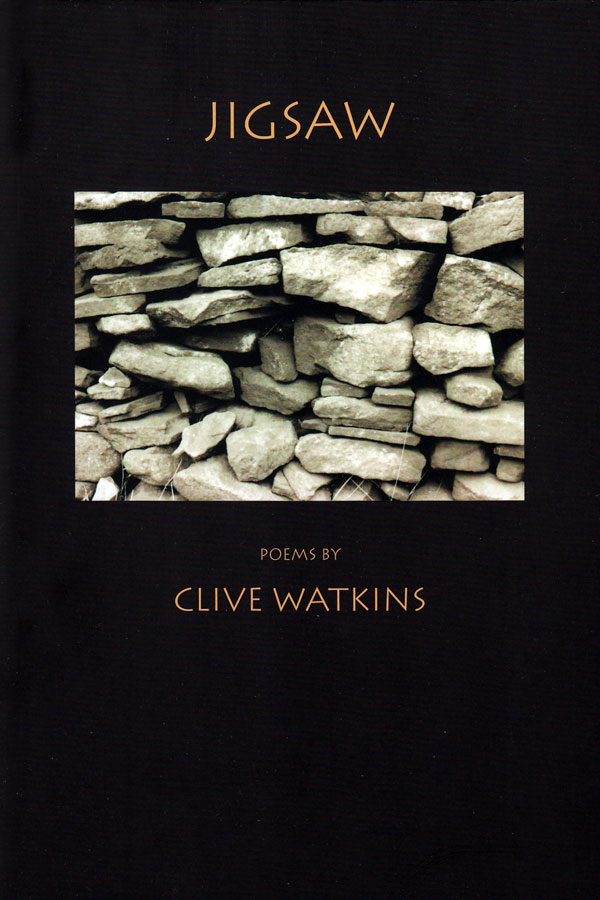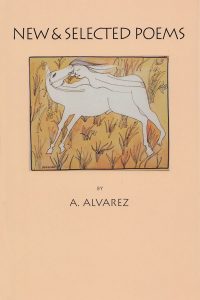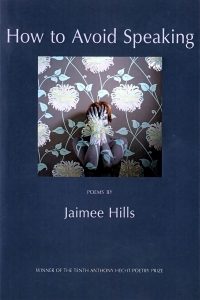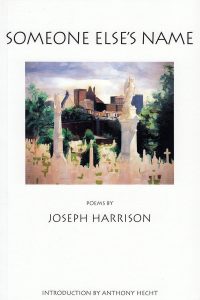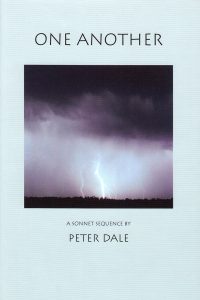Jigsaw
£8.95
The poems and translations collected in this volume were written over a period of more than twenty years and are set in a variety of landscapes, including the poet's native Yorkshire and locations across Europe.
Many of the characters in Watkins's work are trapped by their obsessions, condemned to blind iteration. Such are the elderly couple in “Mr and Mrs Fell Tackle the Late Summer Grasses”, who are bound together physically and by mutual rancour in the labour of mowing, and the lovers in “Museum Boijmans Van Beuningen”, whose narrative circles endlessly back on itself, a figure for the hell in which they are caught.
Other poems in this book address the power of language and art to fashion a fragile order in an absurd world, though art is also seen as a snare, rendering infinitely repeatable the experience it organizes.
Jigsaw also includes several more personal poems – poems celebrating the values of love and friendship in the face of inevitable loss.
This is Clive Watkins's first book.
Jigsaw
“What I value in poetry, and find in Clive Watkins’s poems, is a faithful, accurate, attentive eye that is always focused on the subject at hand, a mind that is never self-regarding, does not strike postures, has no designs on the reader. (This alone would distinguish him from most of his contemporaries.) I am struck again and again by how many of the ordinary ‘things of this world’ get into his poems, and how extraordinary they are as seen through the glass of his language. He writes wonderful sentences, often complex and sinuous, yet utterly clear. And perhaps most of all I relish the richness and subtleties of the sound, the sound that says everything. He handles the verse line with consummate grace and ease, the sense inseparable from the sound, seemingly made of it. More than once, as I read this book, Frost’s praise of Robinson has come to mind, ‘phrase on phrase on phrase…and every one the closest delineation of something that is something’, and too, ‘that grazing closeness to the spiritual realities’, and I have thought, that’s equally true of Clive Watkins. Like very few contemporary poets, he can make a chill run up my spine, a little shock of recognition, a sense that the great mystery has, for a moment, been made articulate. I don’t use the word ‘great’ loosely – great poems are few and far between. But among the many good poems in Jigsaw, there are several great poems – I am thinking of ‘The Wagon’ and ‘Events As Things, Things As Events’ and ‘Abseil’ and ‘Green Chapel’ and ‘At Westerby’s’ and ‘Cherryburn’ and ‘Hilda and Eddie’s Place’ – and there may be others. If England has produced a better poet since Larkin, I can’t think who it would be.” – Robert Mezey
“Watkins is a poet’s poet, a masterful writer of metrical verse – rhymed and blank – but one whose free verse is as good as his formal, a rare achievement. The work is rhythmically powerful and unerring in its lineation, informed as it is by the author’s decades of teaching Shakespeare. At fifty-seven, Clive Watkins is a fully formed poet, and his first book cause for gratitude both to him and to the publishing house that brings him to us.” – Timothy Murphy
“Jigsaw marks a mature, accomplished, clear-eyed debut. It is a collection haunted with landscapes – real landscapes of garden and wilderness, and the unreal topographies of memory and dream – ‘severe and formal’ or edged with thickets and briars. (Even the letters of the alphabet hook together in one poem to become ‘thorns of black sound’.) This book has been a long time in the making, and Watkins’s reticence has paid off. Poem after intelligent poem is the fruit of ‘waiting patiently for the right season, for the right word’.” – A.E. Stallings
“‘Cherryburn’ puts me in mind of all those 18th-century poets who composed the landscape as in a Claude glass; but Mr Watkins is doing something else, and is altogether original. The poem’s transitions and architecture are remarkable. Its argument moves from the clarity of the actual scene in afternoon light to the reminiscent engravings of Bewick (first the ‘light’ ones, then the ‘dark’), and thence to the actual scene again as night descends upon it. A tractor, in stanza 2, enforces the presentness of the initial vision; ‘printed’ and ‘lines’ in stanza three, together with the stanza’s first line, make a transition to Bewick’s preservation of the place in art; ‘ash and oak’, in the dark last stanza, recall and reverse the ‘oak and ask’ of line 2. There is much art in [this poem], while at the same time it flows clear and easy.” – Richard Wilbur
News
For the second time, Verse Daily has chosen to make a poem of Watkins’s its daily choice. "Hilda and Eddie’s Place" was their choice for October 8th, 2003, and if you would like to read this poem, as it was featured, please click on the link below, which will take you to Verse Daily‘s archive.
http://www.versedaily.org/heplace.shtml
Reviews of Jigsaw
London Magazine, April-May, 2004
"This rare sense of human lives being lived from the past into the future is as valuable a gift as a poet can have these days, and I suppose if anything distinguishes the European, Watkins, from his American contemporaries it’s that he replaces their more orthodox religious views with his long view over time. It’s the difference between the misty time-heavy landscapes of Britain Watkins is so good at describing and the hard, bright light of the North American sun. This distinction becomes most obvious in one of the most arresting poems in the collection called ‘Events as Things, Things as Events,’ which gives voices to ‘ghosts in a life still to happen.’ In a paragraph on the back cover of Jigsaw, the American poet, Robert Mezey, writes of Watkins’s gift for making ‘the great mystery’ become, ‘ for a moment, articulate.’ There are many such articulate moments, and I found myself underlining them as I read: this description of North Wales, for example, in ‘Hedger’.
– England, 1924,
already two decades from Wales,
the hewn cloud of its mountains,
vernacular grit that remains itself
rinsing out of the leaden heaps as if
rain had turned to stone.
Or this Stanley Spencer-like painting of an old couple’s cottage overtaken by time and weather in ‘Hilda and Eddie’s Place’.
Here is the Cottage: an ancient thatch gone green,
Damp walls, distemper peeling. Unwashed plates
Clutter the stone sink. The stink of plumbing,
Of your three lean cats, survivors of their tribe,
Has settled on the place – on the rag rugs,
On the newspapers you will not throw away:
Two world wars and sundry lesser squabbles
Crumbling to dust under their dreadful weight.
I am not your child. From wire cages stacked
Beneath the cedar by the kitchen door,
Your prize mynah, glossy black and gold,
Screams out his single cry, telling the hour –
Eight o’clock, eight o’clock, eight o’clock – right twice a day;
And the blinded finches sing and sing and sing.
Watkins sometimes writes as if Robert Lowell were whispering to him, sometimes as if he were listening out for Wallace Stevens. Whatever his American influences, they have been absorbed and transmuted into his own visual and visionary language. This is the way he sees ‘Caldy Shore’ on the Wirral.
What dazzles and blinds is not the sun alone,
but light coming from afar to flash
off scalloped mud, off ruched water,
the rush of the returning tide:
illegible splendour, dark inwardnesses,
that cannot bear even the frail weight of the human.
Clive Watkins, former head teacher of one of the oldest secondary schools in Yorkshire, has wisely waited forty years to publish his first collection. His poems, immediate yet learned, well formed yet contemporary, English yet conversant with American, Classical and European literature, gently but firmly set standards for us all." – Anne Stevenson
Acumen, September 2003
"Clive Watkins was born in 1945, but is only now publishing his first collection: Jigsaw … The book does, indeed, display a striking maturity of technique and sensibility. He … can use traditional forms to great effect, but he is also very skilled in the way he employs freer forms. In both his short and long lines there is often a simplicity, even a starkness, of expression that has a distinctive power. Many of the poems articulate precisely, but unfussily, annotated observations; there are dream poems, and elegies for ordinary places and lives (as in the excellent ‘Hilda and Eddie’s Place’); there are accomplished translations from, amongst others, Heine, Rilke and Victor Hugo. He… can produce striking epigrams, as in ‘Una, Senecta, Viximus Multos Dies’ (from the Latin of Walter Savage Landor):
Old Age, we’re lived together now for years,
For years like friends have managed to get on.
If you should find a quieter place than this,
Whisper it in my ear – and then be gone.
Watkins deserves to find many readers for this belated, richly assured, first collection." – Glyn Pursglove
Cherryburn*
for John McPake
Here by the gate the valley drops
past a broad stand of oak and ash,
and the stone barn, to a smaller copse –
all birch and alder – where, in a flash
of autumn sun, the river pours
steadily down from the high moors.
Late afternoon: the air so still
that sounds float up distinct and clear.
A farm dog barks along the hill;
somewhere a tractor changes gear;
while close at hand across the wall
two donkeys stir in their dark stall.
This even light makes what is far –
those printed fields, the lines of trees,
and all the shining things that are –
draw near, perfected and at ease,
as if, in the ambit of the eye,
nothing once seen could ever die.
Such the skilled engraver knew,
who carved into the stubborn grain
a pig, some geese, a draggled ewe,
a snowy field, a muddy lane,
making an art of what he found
upon this rare, sequestered ground.
And this? The dead man who has hung
all day above a swollen stream?
A woman pissing in the dung?
Over their meal two magpies scream,
the dog caught helpless in a snare.
These, too, the engraver did not spare.
His burin cut from dark to light;
but now the day begins to fade,
and the world sinks in a long night.
(What place was this in which we strayed?)
The farmhouse cat is on the prowl,
and that pale, shrieking thing’s an owl.
Now shadows deepen on the hill,
and cottage chimneys start to smoke:
the October air is turning chill.
In the soft darkness, ash and oak
have slipped away. The hour is late;
supper, a good fire, bed await.
Cherryburn, 13th October, 2001
*Cherryburn, a farmstead set in a rural stretch of the upper Tyne valley, was the birthplace of the celebrated wood-engraver, Thomas Bewick (1753-1828). Though Bewick spent most of his professional life in Newcastle, the images included in his “tale-pieces”, as he himself called them – small decorative prints, often pointing a moral, and inserted on title pages and at the ends of sections – reflect the landscape of his youth.
The Waywiser Press
For a Friend on the Death of Her Husband
The trees are felled whose feathered height
sheltered your house but stole the light
and cast its rooms in shade.
Now heaped where the artful woodman’s saw
went snarling through their flesh, the raw
and leafless boughs are laid.
An hour – or less – he stood and toiled
in the cold garden, leaving spoiled
what twice seven years had grown:
commingled earth and air, they rose,
marrying unrest with repose,
to make their natures known.
Wisely the gardener will cut
those branches back which, growing, shut
some lesser plant from air,
but what is that grief whose flower will bloom
only within so wide a room
it lays the garden bare?
Now to the north the candid sky
offers your melancholy eye
a winter emptiness,
vast absence softening into snow,
dazzling oblivion, as though
to figure your distress:
whose hurt remains, though the bright spade
may clear in spring what winter made –
a wilderness of sticks –
and in one bed sharp rosemary,
lad’s love and lavender agree
to let their savours mix.
O then may the tempered air be filled
with healing voices, and the skilled
affections rule the weather;
and silence flower, that tender plant;
nor for fine meats the table want
where friends sit down together.
The Waywiser Press

